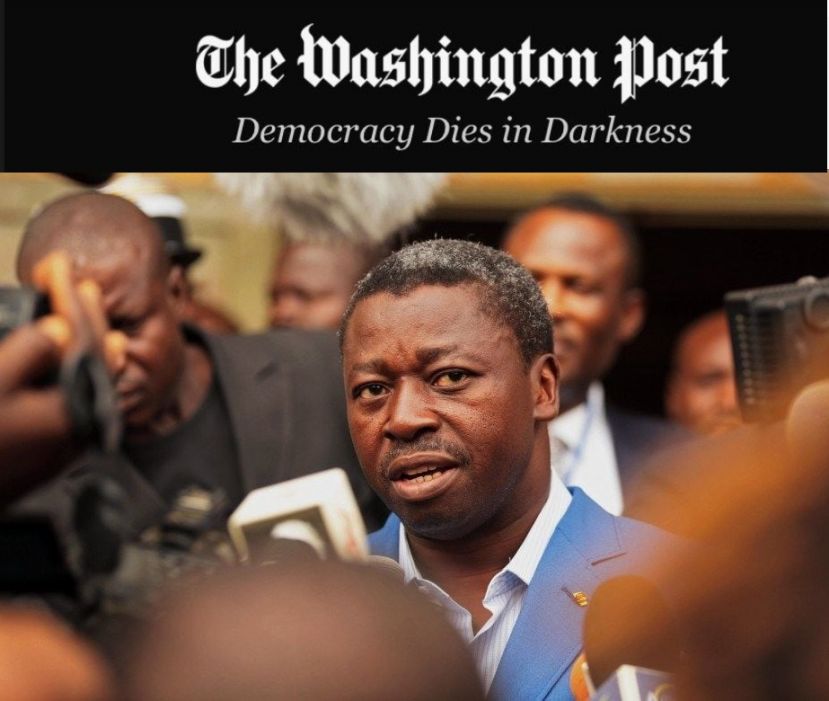Boycotts are not new in Togo. Major opposition parties boycotted Togo’s first three legislative elections after the country adopted multiparty politics in 1992. The boycotts left the legislature dominated by the ruling party, granting it power to make constitutional amendments, enabling two leaders, Gnassingbé Eyadéma and his son Faure, to extend their successive rule past the 50-year mark.
In Togo’s previous two legislative elections (2007 and 2013), however, opposition parties competed — and held the ruling party to less than 50 percent of the vote. C14’s move in December effectively guaranteed the ruling party control of Togo’s legislature.
But the opposition members believed they had little power to change that outcome, whether they competed or not. They complained of an “independent” electoral commission dominated by the ruling party, legislative districts disproportionately favoring the ruling party, and government refusal to reinstate the term limits and voting provisions of Togo’s 1992 constitution.
Togo’s ruling family has remained in power since 1967.
The roots of these complaints go back decades. President Faure Gnassingbé’s father took power in a 1967 military coup; father and then son have held the presidency since. After neighboring Benin liberalized its political system, domestic and international pressure prompted Togo to introduce the 1992 constitution, which included multiparty elections and a two-term limit on the presidency.
In response to political violence and the disqualification of the main opposition candidate — Gilchrist Olympio, son of Togo’s first president — major opposition parties boycotted legislative elections in 1994, 1999 and 2002. Olympio did contest the 1998 presidential election and may have won; his strong performance led the government to take over ballot counting from the quasi-independent electoral commission.
In 2002, the legislature amended the constitution to remove presidential term limits and change elections from two rounds (which could help a divided opposition unite behind a single candidate) to a single-round plurality vote system. Upon Eyadéma’s death in 2005, his supporters suspended the constitution to proclaim his son president but yielded to domestic and international pressure to hold a presidential election that year.
The opposition, violently repressed, complained of fraud in both the 2005 and 2010 presidential elections. Continued pressure convinced the government to establish an independent election commission (CENI) with representation balanced between the ruling party and the opposition. In 2007, the opposition participated in a legislative election for the first time and collectively won more votes than the ruling party, but malapportionment gave the ruling party a dominant share of seats despite winning less than half the votes. The same thing happened in 2013, with turnout down to 66 percent from 85 percent in 2007.
The opposition remains thwarted.
In addition to exploiting biased district boundaries, Gnassingbé recruited Olympio, longtime leader of the main opposition party — the Union of Forces for Change (UFC) — to join the government coalition in 2010. Most UFC members split from Olympio and joined a new opposition coalition, the Save Togo Collective (CST), which placed second in the 2013 legislative election; another opposition coalition (CST’s partner in C14) took third. Olympio’s UFC fell to fourth, with just three seats.
The ruling party’s legislative majority defeated the widely supported restoration of presidential term limits, paving the way to Gnassingbé’s third term in 2015. Protests gained steam in 2017; hundreds of thousands of Togolese took to the streets, calling for a constitutional referendum to block Gnassingbé from seeking a fourth term. Government security forces violently repressed the protests.
The July 2018 legislative election was delayed to allow for facilitated talks between the opposition and the government, but the government continued to resist demands to restore the 1992 constitution, increase the number of districts in the south to make voters per district more proportionate, and exclude the UFC from CENI seats reserved for opposition parties.
The UFC finally released its claim on opposition CENI seats in November, after voter registration and plans for the December election had been completed. When CENI ignored demands to redo the voter registration with its participation, C14 organized the election boycott to pressure the government to cancel the “fraudulent” election. The opposition’s last-ditch protests in early December were violently repressed, with at least four deaths reported.
Election Day itself was peaceful, with 59 percent turnout — lower than previous elections, though not as low as C14 had hoped. The ruling party’s share of the legislature’s 91 seats fell from 62 to 59, but its ally UFC gained four seats, with the remainder going to minor parties and independents unlikely to constrain the government. Supporters of the government point to the smoothly run election as a disavowal of C14.
What does C14 gain from the boycott?
These outcomes suggest C14’s boycott failed to achieve its goals. Why did Togo’s opposition turn to boycott tactics? Political scientists Emily Beaulieu and Susan Hyde detail the costs and benefits of boycotting when opposition groups contemplate whether to contest an election.
Costs include the loss of legislative seats and potential inclusion in the cabinet in the short term — and damage to the party’s reputation and electoral support in the longer term. On the plus side, boycotts are sometimes successful in discrediting the ruling party and convincing it (with the help of foreign pressure) to improve the fairness of future elections. This is what happened in the lead-up to Togo’s 2007 legislative elections.
Factors like electoral unfairness, an entrenched opposition and whether international election observers are present also help explain C14’s boycott. The earlier Togo boycotts were a partial success: The country liberalized the 2007 legislative elections but not enough to allow the opposition to achieve a legislative majority. The ultimate success of the 2018 boycott will depend on the response of domestic and international actors alike.
Tyson Roberts teaches political science and international relations at the University of Southern California. His research interests include African politics, authoritarian institutions and international political economy.






